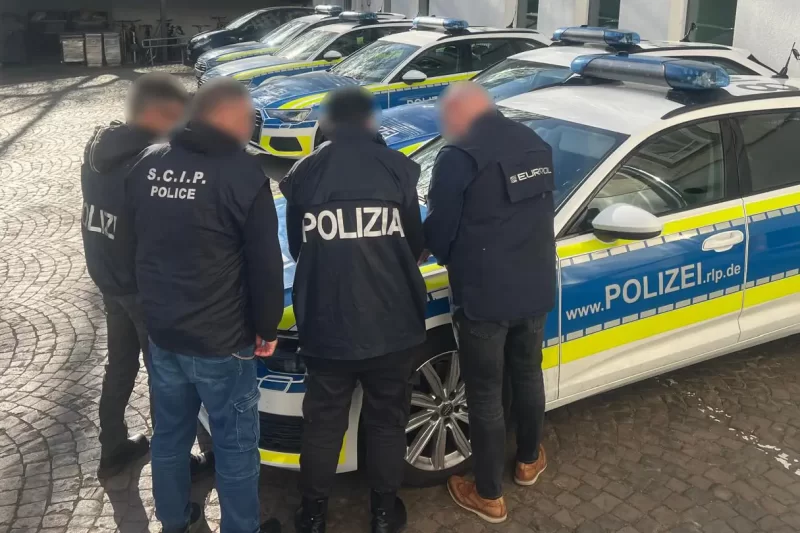Seven Arrests in Hit against Egyptian Criminal Network Smuggling Irregular Migrants Across the Mediterranean
During an action day conducted on 8 April 2025, Italian law enforcement authorities took decisive action against a migrant smuggling network largely comprised of Egyptian suspects. Coordinated by Europol and supported by Greek and German law enforcement, the operation resulted in the arrest of seven key members of the network in Italy, Germany, Albania, Türkiye and Oman with assistance from INTERPOL.
Investigations revealed that the criminals relied mainly on Egyptian skippers to transport irregular migrants from Türkiye to Italy and Greece. The migrants illegally crossing into Europe paid the equivalent of up to EUR 10 000 per person for the journey. With at least 3 000 migrants smuggled across the Mediterranean, the criminal network’s turnover can be estimated to run into the tens of millions of euros. To tackle this crime, which continues to be a lucrative criminal enterprise, an Operational Task Force was established between Italy and Greece at Europol in 2023. This initiative is a direct result of the European Commission’s 10-Point Plan for Lampedusa, which aims to reduce irregular migration across the Mediterranean Sea to the EU.
Decisive action against key smuggling route
In recent years, Egyptian nationals have increasingly been reported as both irregular migrants and smugglers operating on various routes into and throughout the EU, including the Mediterranean and the Western Balkan routes. The network targeted by this investigation offered illegal journeys by sailboat from the Turkish coast to Italian and Greek destinations, demanding payments of between EUR 9 000 and EUR 10 000 from each migrant. On the action day on 8 April 2025, seven key members of the criminal network were arrested (two in Italy, one in Germany, one in Albania, one in Türkiye and one in Oman) and another arrest warrant issued for a suspect already in custody in Italy.
This investigation started after an incident in May 2022, when Italian authorities intercepted a sailing vessel off the Italian coast. The vessel, operated by Egyptian skippers, had allegedly departed from Türkiye with 87 irregular migrants of Afghan and Syrian nationality. Italian authorities uncovered a series of similar transports in various regions, orchestrated by the same criminal network. The Egyptian criminal network is believed to have had cells in Türkiye, Egypt, Greece and Italy, with individual members responsible for different tasks. These tasks ranged from recruiting skippers, communicating with irregular migrants via social media and instant communication platforms, transferring money and providing temporary accommodation along the route.
Europol’s contribution to the operation
In the framework of the Operational Task Force established with Italy and Greece, Europol provided analytical support to the investigating countries and acted as an information hub between all partners. Europol’s experts in the fight against migrant smuggling analysed all information shared via SIENA and cross-checked it against Europol’s databases. In addition, Europol guest officers deployed to Italian hotspots provided further intelligence and reports and coordinated directly with law enforcement authorities on the ground.
From its headquarters in The Hague, the Netherlands, Europol hosted several operational meetings organised in the framework of the Operational Task Force as well as with partner countries such as Türkiye. Several partners, including non-EU countries relevant to the investigation, contributed to and supported the investigation leading up to the arrests on 8 April 2025.
On the action day, Eurojust supported the judicial cooperation with Germany by transmitting the relevant legal requests for the arrest and searches to the relevant authorities. INTERPOL facilitated the arrests in non-EU countries. A Europol migrant smuggling expert was deployed to Germany while Europol guest officers based in the Italian hotspots were deployed to several locations in Italy. They supported the national authorities by checking the newly discovered information against Europol’s databases, providing forensic expertise and coordinating with their colleagues at headquarters.













